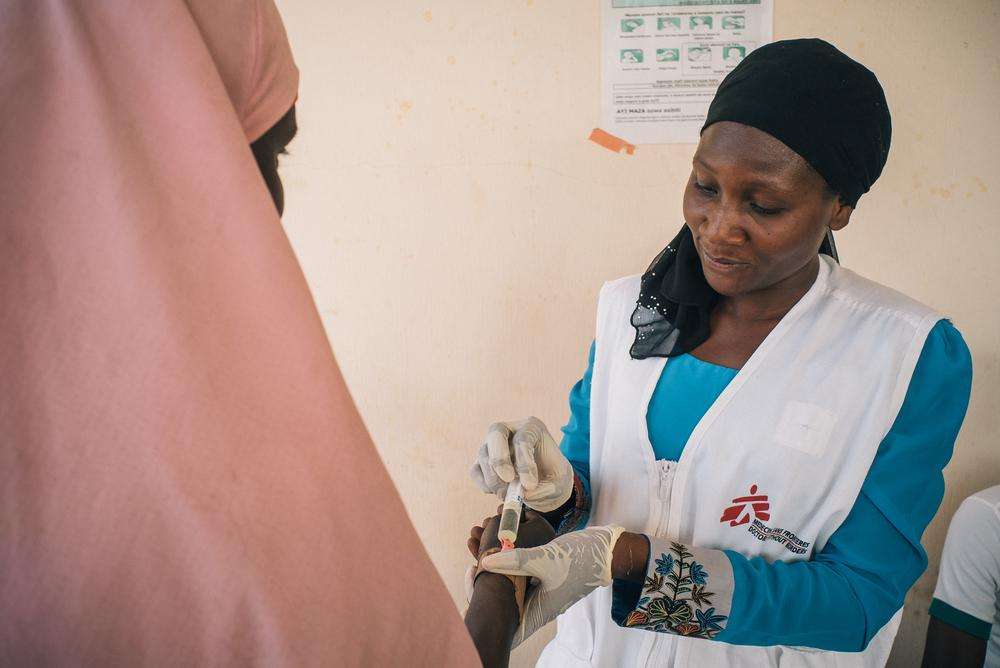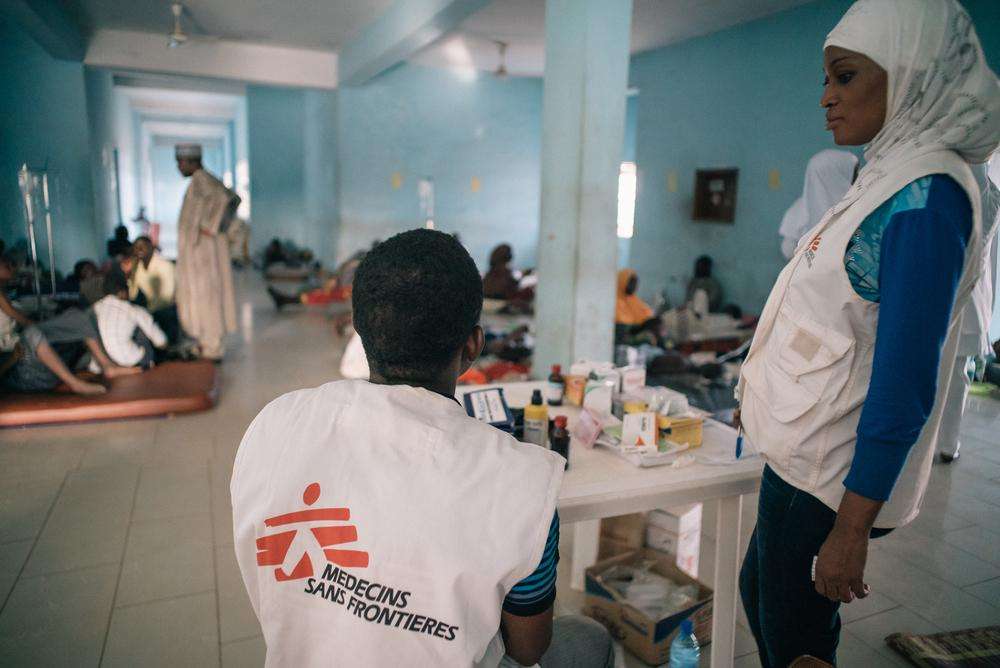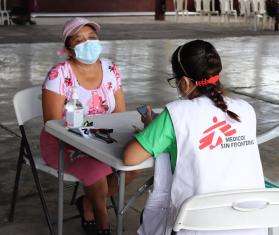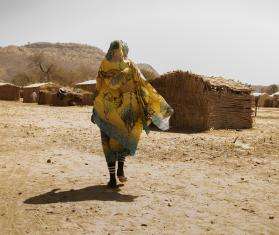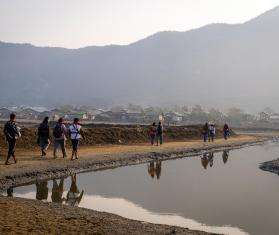The Doctors Without Borders/Médecins Sans Frontières (MSF) Nigeria Emergency Response Unit (NERU) is currently working with the Nigerian Ministry of Health to respond to an the largest outbreak of meningitis C in nine years in the country's Sokoto and Zamfara states. NERU project coordinator Bart Bardock has been working in Nigeria’s Sokoto, Zamfara, Kebbi, and Niger states since February 2017, collecting samples, doing surveillance work, and supporting the national vaccination campaign to reduce the impact of the outbreak. Here, he discusses the situation.
How is MSF's Nigeria Emergency Response Unit responding to the current meningitis C outbreak?
Since February, we have been active in the field supporting the Nigerian Ministry of Health to diagnose cases by collecting samples to confirm the type of meningitis through a rapid laboratory test. We’ve trained medical staff, donated antibiotics to treatment centers, and helped find new cases to reduce morbidity and mortality. We have been supporting two treatment centers in Sokoto and Zamfara states, and between May 1 and May 8, we supported the Ministry of Health with their vaccination campaign in Sokoto.
How many people did you vaccinate per day in Sokoto State?
We had 25 teams vaccinating people for seven days. At the end of the vaccination campaign we had vaccinated around 140,600 people in the three most-affected areas of Sokoto; 95 percent of our 148,000-person target we took from the Ministry of Health campaign.
Nigeria has suffered from repeated outbreaks of meningitis. Why is that?
Nigeria is part of what they call sub-Saharan Africa’s "meningitis belt." The meningitis belt stretches from Senegal in the west to Ethiopia in the east, crossing 26 countries in the process, and has the highest rates of the disease in Africa. On average, vaccines provide coverage for three years, and therefore immunity to this disease is only temporary. With around 300 million people in the belt, it is difficult to maintain this protection.
Is this outbreak different from those of previous years?
We have been responding to meningitis C since 2013, but this is reported to be the largest outbreak of meningitis C we have seen in nine years. Nigeria has had large meningitis outbreaks before, but those were meningitis A. As a result of mass vaccination campaigns in the past, levels of meningitis A were drastically reduced, which allowed the C strain to become the dominant one. Since many people were not yet protected against meningitis C, it has spread widely among the population.
What are the main challenges MSF faces in the response to this outbreak?
The main challenges are the limited number of vaccines available to protect the population, the lack of early diagnostics and treatment, and the limited knowledge of the disease within the population. With a country of 183 million people, it is a challenge to swiftly identify diseases with a potential epidemic character. People are not always aware of the signs and symptoms of the disease and therefore do not seek treatment in time.
It is also important to confirm the suspicion of a certain disease through a laboratory test to avoid misdiagnosis. These tests help to identify the exact strain involved, which allows us to determine what type of vaccine or treatment could be used to reduce the impact. The response capacity for countries in the "meningitis belt" with a history of previous outbreaks needs to be improved.
Are there any concerns that should be highlighted regarding the official response to this outbreak?
A late response due to a weak surveillance system—which caused a late declaration of the outbreak—as well as no available testing and a serious lack of treatment are the main challenges Nigeria faces in its response to the current outbreak. I really appreciate the efforts taken by all those involved in responding to the outbreak, but, due to a number of factors, the overall response began too late. With a country of 183 million people, it is a challenge to swiftly identify diseases with a potential epidemic character.
What should be the next steps in the response?
Vaccination of people at risk is the best and most proactive way to ensure protection through herd immunity and to contain the outbreak as much as possible. After the large vaccination campaign with conjugate vaccines against meningitis A, there [has been] no outbreak reported of this type in Nigeria since 2013. This proves that it is possible to end large outbreaks with good and sufficient vaccines and a good strategy.
Another way to reduce the impact and to save lives is to provide timely and adequate treatment with antibiotics, which is what we did in our treatment centers. Besides this, we continuously evaluate where the highest needs are in order to respond in a timely fashion. The decentralization of the treatment centers is also needed to respond adequately to these emergencies.
NERU has been active in Nigeria since 2006, responding to medical emergencies such as meningitis and measles outbreaks.
Read More: Testimonies from Patients and Staff in Nigeria
